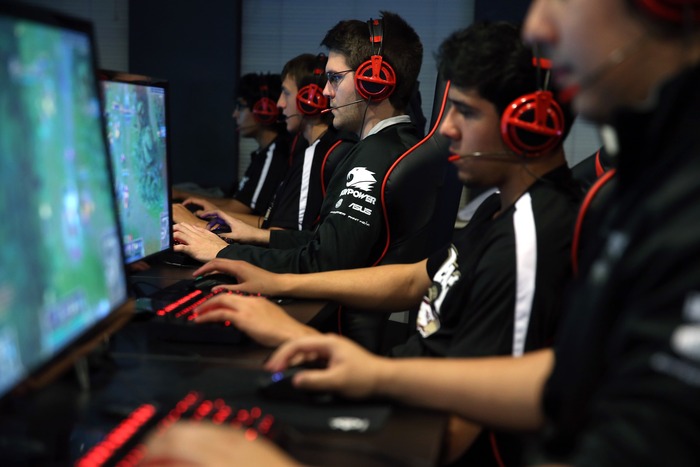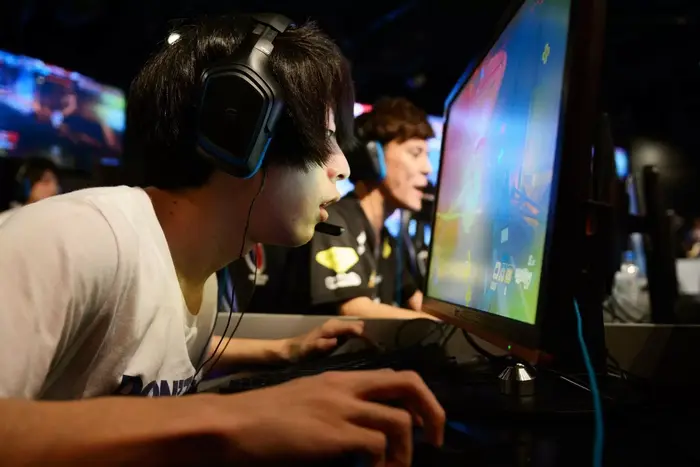Esports, the world of competitive video games, is not just pixel battles and virtual glory. It is also a large market with different subsystems. For example, one important aspect of esports is the gambling and betting market.
Popular competitive games, such as VALORANT, attract a lot of people, and the concept of valorant gambling has become a household name. However, beneath the colorful graphics and roar of the crowd, there is always a realm that tests the mental fortitude of the participants.
Esports requires a unique form of mental toughness that can have a profound impact on players’ lives both in and out of the gaming arena. In this article, we will look at the psychological benefits of competitive gaming, exploring how it develops mental toughness and prepares players for the challenges of the real world.
Pressure and stress management
Esports competitions can be very stressful, with high-stakes games watched by the whole world. Players often find themselves in situations where one mistake can cost the entire match. The constant pressure to perform under the spotlight provides invaluable experience in dealing with stress.
Let’s remember legendary Dota 2 player N0tail, who led his OG team to victory at The International 2018. In the grand finals, OG came back from the brink of defeat with an amazing display of mental toughness. They maintained their composure under immense pressure, demonstrating their ability to deal with stress effectively.
Similar skills are required in gambling, as in the valorant betting predictions which became popular among fans of the game and gaming overall. By managing your emotions and coping with stress, you will not only increase your winnings but also save your bank from unnecessary spending.
Stay calm under fire
Competitive gamers must remain calm and composed even when faced with seemingly insurmountable challenges. The ability to contain excitement and make informed decisions is a skill that extends far beyond the gaming world. For example, students can apply this skill during exams or high-pressure presentations.
Setting goals and achieving them
Esports players often set ambitious goals for themselves and their teams. These goals force them to push their limits and strive for continuous improvement. This kind of goal-oriented mindset can be transferred to academics and careers, helping students set and achieve their goals.
Adaptability and strategic thinking
Competitive games are dynamic and constantly evolving, requiring players to adapt to new strategies and changes in the game. The constant need to adapt fosters critical thinking and strategic skills.
In the game Valorant, we see professional teams constantly adjusting their strategies mid-game based on their opponent’s actions. This dynamic decision-making demonstrates players’ ability to think on the fly.
Critical Thinking
Esports players demonstrate the ability to think critically, assess situations, and make decisions quickly. This skill is very useful for solving problems in real life, such as troubleshooting technical problems or making quick business decisions.
Long-term planning
Esports teams often strategize for the long term, taking into account the metagame and the propensities of their opponents. This is similar to the process of setting long-term goals in education and career, where a person must plan for future success.
Teamwork and communication
Team-based esports games such as League of Legends and Counter-Strike: Global Offensive emphasize the importance of teamwork and effective communication. These skills are essential not only for successful play but also for personal and professional growth.
The San Francisco Shock team from the Overwatch League demonstrated impeccable teamwork by winning the championship in 2019. Their cohesive play and communication allowed them to consistently dominate their opponents.
Co-operation
Esports requires cohesive cooperation between team members, teaching players to work together effectively. It is akin to group projects in academia or cooperative work in the workplace, where effective teamwork is the key to success.
Communication skills
Esports encourages clear and concise communication between team members, often using specialized terminology. These communication skills are easily transferable to academic discussions and professional presentations.
Conflict Resolution and Sportsmanship
Esports competitions are not always harmonious and disputes and conflicts can arise. However, competing gamers often develop strong conflict-resolution skills and a sense of sportsmanship.
An incident involving Faker and Ryu in League of Legends demonstrates how disputes can be resolved peacefully. After a heated rivalry, they reconciled, showing an example of sportsmanship to the entire competitive gaming community.
Conflict Resolution
Esports players learn how to resolve conflicts within their team, which fosters a positive team atmosphere. These conflict resolution skills are very important in the workplace, where conflict can arise in any professional environment.
Sportsmanship
Participants in esports competitions display sportsmanship by respecting their opponents even in the event of defeat. This spirit of fair play and charity is a valuable trait in both academic and professional contexts.
Conclusion
In the world of Esports, mental toughness is not just a phrase but a prerequisite for success. Competitive games force players to handle pressure, think critically, communicate effectively, and resolve conflict – skills that have far-reaching applications in everyday life. Whether you’re a student honing your mental toughness through gaming or an educator recognizing the value of Esports for personal development, the psychological benefits of competitive gaming are undeniable. As the esports industry grows, it will undoubtedly play an increasingly significant role in shaping the mental toughness and resilience of future generations.


